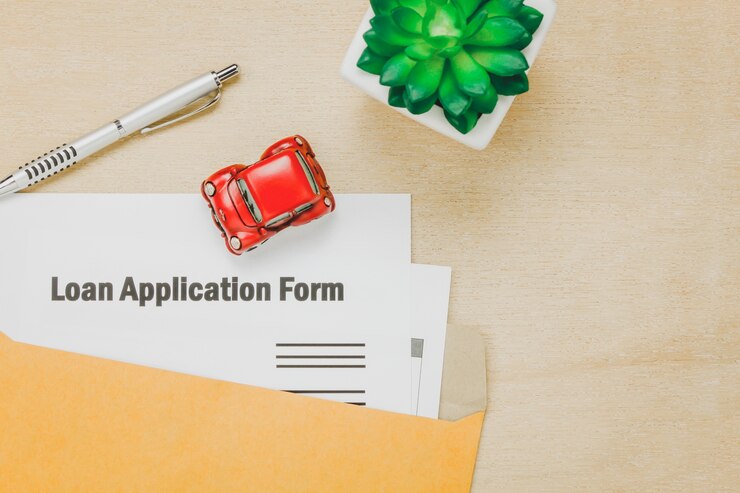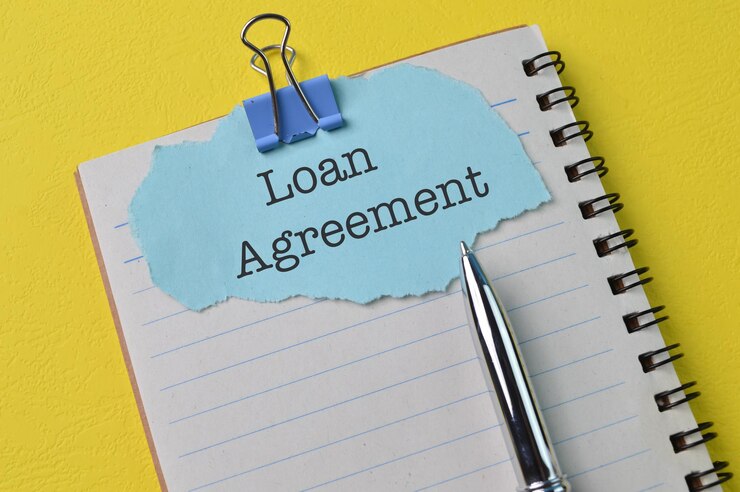If you own your home and need large sums of money, you should be eligible for a secured loan. These are generally known as “homeowner loans,” and they are offered against an asset (usually your home). Visit here.

These types of loans should be protected in case you are not able to continue with payments. They can also be attached to other valuable commodities like diamonds or cars. Visit here.
A Secured Loan:
A secured loan is one in which the borrower puts up an asset (such as a home) to help reduce some of this risk. This is also called a homeowner loan. The lender would file a formal charge against your possession as security.
That means that failing to be able to secure your payments could mean they repossess the asset to reclaim their loan balance.
While unsecured loans don’t require collateral, secured loans have prerequisites. Because the lender has less exposure, secured loans generally offer lower interest rates and higher loan amounts.
Various Secured Loan Types:
Numerous kinds of secured loans can be found in the UK. Here are the premium ones out of them:
Loans for homeowners:
Homeowner loans are specifically designed for homeowners. Given that your house is used as collateral against the loan, you can borrow more considerable sums—usually £100,000 or more — meaning how much a person could spend on their home and personal savings.
Home Loans:
In general, they pass it onto the land to be submerged as collateral for the loan. If you are robbed of your home, the bank cannot forcefully take back what is rightfully yours.
If you are a homeowner, the most common way to get that extra security is through remortgaging—this means changing lenders or terms.
Auto Loans:
Secured Loans via Auto Title Loans: You see them often when financing a new or used car. The auto loans are secured against the vehicle, and if you don’t pay them back on time, they can take your ride.
Loans for Debt Consolidation:
Their answer is to take out secured loans to pay multiple costs in one go. If you can consolidate debt in a single secured loan, you may be able to receive a lower interest rate and reduce monthly outgoings, making things much more manageable.
Remember that you cover unsecured loans (cc — credit card debt) with your home, so tread carefully.
Loans for Personal Assets:
You can rarely offer your own assets, such as gold or a painting, in which case they will become security for a loan.
Having a house:
Secured loans — Most secured loans will require you to be a homeowner. Owning your house outright gives you more borrowing choices. This factor may affect the loan amount if, say, you have a mortgage.
Credit Record:
Even though secured loans are often available to individuals with poor credit histories, higher scores can still get an interest rate. Typically, a lender may perform a credit check as part of the application process.
Earnings and Availability:
They will calculate your costs and income to determine whether you can repay the loan. Bank returns (if self-employed) If you are doing freelance but for an employer, they may or may not have these on hand.
Attached:
An item you need to obtain the loan. That will reside in their household for the most part, although it may include other resources such as a car or anything else. How it works: What you borrow depends on how much money your asset is worth.
Procedure to apply for a Secured Loan:
It is essential to compare offers before applying for one. While some lenders only offer secured types of loans, others also provide many other types. Check the interest rate, financing terms, and other fees.

The Sum You Need to Avoid:
Establish how much you want to borrow and have sufficient equity in your house or other properties so the loan costs can be. Lenders will require that you be lent a proportion of the value
Collect the Necessary Records:
It will probably require several forms, but to approve your application process, lending has. These may include identity documents, proof of address, income information, and information about the collateral you are putting up.
Send in an Application:
You can usually apply by phone or online. The lender will check affordability and perform a credit match Homeowner loan -> If the lender asks for a valuation of your house so that they know how much equity you have.
Offer and Agreement for Loan:
A good application will also end in a loan offer from the lender. Make sure to read the terms before you sign, including the interest rate, repayment schedule, and penalties on early or late payments.
Get Paid:
You can expect funds to be deposited in your account shortly, usually within a few days, after you are asked if you want the loan. However, larger loans, mortgages, or property values can take longer due to the extra verification process involved.
Risk of Losing Your Things:
The most significant risk accompanying a secured loan is that your house or other possessions are at stake as you fall behind on payments.
Rates of Interest.
Secured loan interest rates tend to be lower than those of unsecured loans, but there are still huge variations. Shop around for the best deal, but be wary of additional fees or hidden charges.
These loans are helpful in case you need to borrow a significant amount. The equity you have in your property will dictate the interest rate available to you, and depending on which of those rates choices that use loans makes sense for your situation, it may be fixed or variable.
A mortgage is always a secured loan, the amount of money you borrow to have left over once you pay your deposit while purchasing a home.
Duration of Loan:
A quick list is that secured loans have a longer term (up to 10 years) in order of importance. While this can lead to lower monthly payments, you’ll end up spending more on interest over the life of the loan. Be sure to ask yourself if it would be in your best interest.
Early Repayment Charges:
Finally, look out for early repayment penalties. Certain secured loans have penalties if you pay off the loan ahead of time. Be sure to know the costs before accepting any loan.
Effect on Credit Rating:
If you get an unsecured loan, your credit ratings will go down a little. Good behavior, such as on-time payments, raises your credit score, whereas slack in repayment results in heavy damage, especially if you lose an asset via repo.

Other Loan Choices:
Before opting for a secured loan, consider the alternative funding options. These could consist of.
Unsecured loans:
This was a favorable lending landscape over time as opposed to some of the available higher-interest, no-collateral loans.
In summary:
Secured loans can be a useful solution for UK borrowers who need large funds. They are ideal for High-Amount Purchases such as Debt consolidation, Home Renovation, and large individual personal loans.
While the stakes are high, you should only do so if you are certain of the repayments being made. Always read the fine print, research your financial situation, and look for better deals before you apply for any secured loan.
FAQ:
Describe secured loans. For instance, a loan where real estate or car collateral is provided to secure the debt would be secured, in other words, when somebody borrows money with their home typed as high-risk (financial sensitivity) — namely against the offer of the property.
What can I use as security for a secured loan in the UK?
Your house (real estate or a buy-to-let property), cars (autos, motorcycles), and other valuables are frequent examples of collateral. The loan amount must be fully collateralized.:
When can I qualify for a secured loan?
While specific lender eligibility is unique, one categorized set of requirements covers:
- British Address
- A significant resource for security
- Proof of earnings or the power to repay the borrowed funds
- Contents A credit check Verification of name and residence
How much can I borrow with a secured loan? The amount you may borrow will depend on your ability to repay the loan and whether you are under-secured.
- What benefits a secured loan can provide?
- Lower interest rates than unsecured loans
- Greater borrowing quantities
- extended payback times
The UK secured loans range between £5,000 and over, even up to £500k or more, depending upon the lender and your credit score.











Hey! Do you know if they make any plugins to help with SEO?
I’m trying to get my site to rank for some targeted keywords but I’m not seeing very
good gains. If you know of any please share. Thank you!
You can read similar article here: Eco blankets